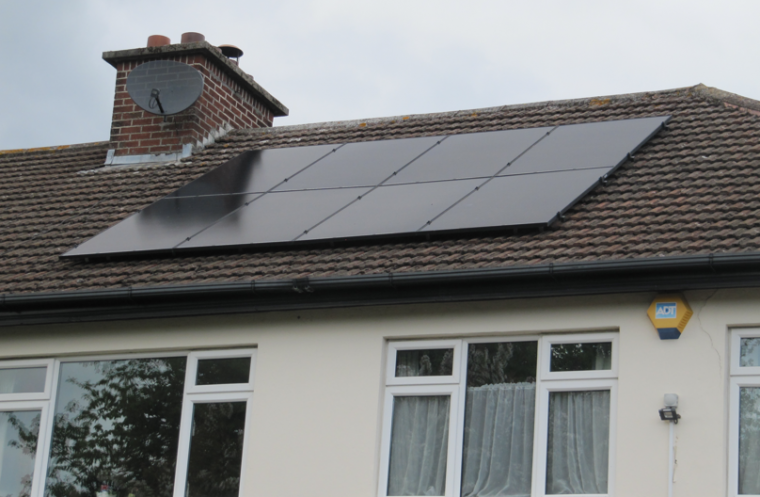
Andrew Shorten sent ECI this latest news:
One of our parishioners recently installed solar panels so it is a real live example. Individual experiences may vary. I don’t think the feed-in tariff has been announced yet, although it is now August. So I think there is a general health warning that you need to research your options. For instance, using the spare electricity to run a heat pump system or charge an electric vehicle is ideal because it saves more fossil fuel. Selling to the national grid may give a disappointing income.
It is said that a quarter of Ireland’s total carbon dioxide emissions originate from the energy we use in our homes. A number of Rathfarnham parishioners have taken the initiative to improve their energy efficiency by measures such as improved attic insulation, wall and underfloor insulation, and fixing the sources of draughts.
Before you sell or rent out a house, you must employ a Building Energy Rating (BER) assessor to do a survey and rate the house on a scale from A1 (best) to G (worst). Similarly, the BER is part of the process when you apply for a grant from the Sustainable Energy Authority of Ireland (SEAI) under the Better Energy Homes programme. A home with a high rating is likely to increase the value of your home.
SEAI grants are available for insulation, solar panels (for either water heating or electricity), heat pump systems, heating controls, the BER, as well as bonuses for extra measures.
The photo shows eight photovoltaic (PV) panels installed on a south-facing roof. The work was carried out by an approved installer who also managed the grant application. The electricity generated in this example is used during daylight to power household appliances, showers, immersion water heating, and can potentially be used to recharge an electric car. It saved the householders 1,260 kilowatt hours (kWh) in the first year of operation, worth €264. The surplus electricity on sunny days is fed into the national grid, monitored by a smart meter. At present this attracts an annual “interim payment” of €150, but the Government has announced that a “fair price” per kWh will be introduced from July 2021. The solar panel system cost €8,600 and SEAI grants of €1,400 were obtained. Other energy savings to the existing gas condensing boiler system were made by improved insulation and pipework.
So you can have a mini power plant on your own roof!
Simple and relatively inexpensive steps like lagging your hot water tank and draught proofing a problem door can save a lot of energy.
Although investment is required, making your home cosy and affordable to heat is surely desirable – for comfort, saving money long-term, and saving the planet.
